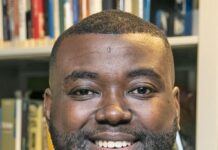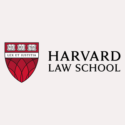 A new study by scholars at Peabody College of Vanderbilt University in Nashville, Tennessee, examines the subject of loan aversion among prospective U.S. college students and how it impacts enrollment rates at institutions of higher education. Loan aversion is defined as an unwillingness to take on debt to finance educational pursuits.
A new study by scholars at Peabody College of Vanderbilt University in Nashville, Tennessee, examines the subject of loan aversion among prospective U.S. college students and how it impacts enrollment rates at institutions of higher education. Loan aversion is defined as an unwillingness to take on debt to finance educational pursuits.
The three authors, all assistant professors of public policy and higher education at Vanderbilt University, surveyed 6,000 high school seniors, community college students, and young adults without a college degree. Some 20 percent of young adults and 22 percent of high school seniors opposed borrowing money for college. Only 9 percent of community college students opposed borrowing money for college.
The results found there were differences in loan aversion between demographics groups. Students from families where the parents had no college experience (a group where there is a disproportionate percentage of African Americans) were more loan averse than other students. The study also found that Black students were 7 percent more likely than other students to not consider financial aid packages that had a student loan component.
Angela Boatman, the lead author of the study said, “we find that loan aversion is widespread among potential and current college students and varies in different populations.” She adds that students who are loan adverse end up “working more hours when enrolled, choosing a two-year college instead of a four-year college, or enrolling part-time instead of full-time, which can affect persistence and success in college.”
The full study, “Understanding Loan Aversion in Education: Evidence from High School Seniors, Community College Students, and Adults,” was published on the website of AREA Open, a journal of the American Educational Research Association. It may be found here.












This is good news considering that most blacks who attend college don’t graduate and if they do, a lot of the time whatever they earn from their jobs doesn’t warrant having borrowed money for college in the first place. Most blacks who attend college get a lot of student loan debt and no degree to show for it.
David, I’m not liking your comments or assumptions on the black community as if you are the expert. It’s not your place to say most blacks don’t graduate as if being white is the solution